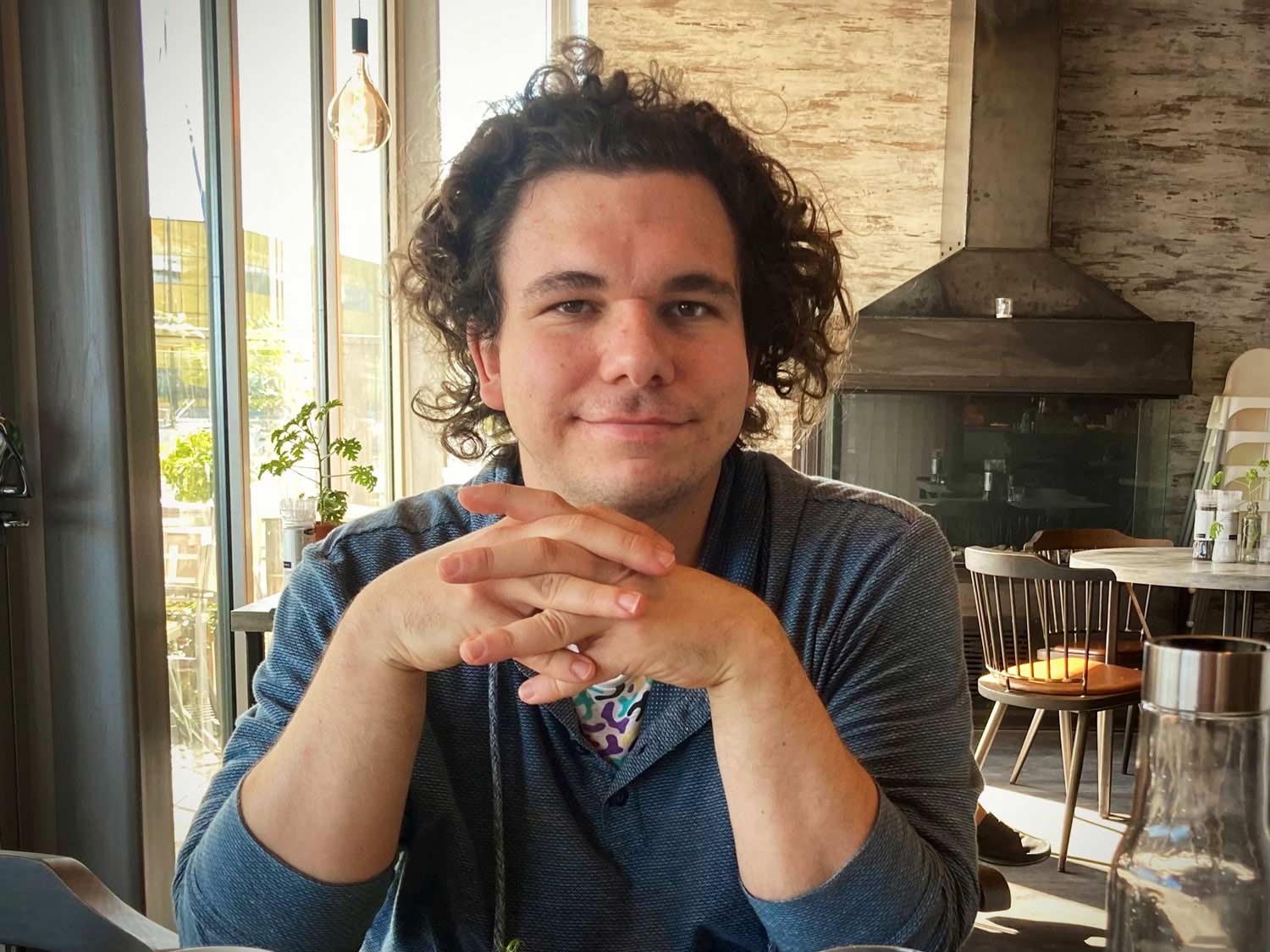
© sodawhiskey / AdobeStock
And Then? Grab Opportunities
In this series, we present Uni Bremen graduates and their careers. This time: Dr. Felix Wenk, a systems engineer for OHB in Bremen.
As a child, he used his parents’ old computer and during his degree, he programed football-playing robots: Felix Wenk knew at an early age that he wanted to go into the field of computers. However, the path into research was surprising. Now, the 35-year-old works as a systems engineer for OHB. Felix Wenk tells us here what his career path looked like and what tips he has for those entering the job market.
What was the path to your current job like?
After completing my high school graduation exams and my German civilian service, I began to study computer science at the University of Bremen in 2007. A big part of the computer science degree was projects - thus classes where students have the chance to try out computer science with project supervisors. In the project I chose, which was “B-Human,” software for robots was developed and still actually is today, in order to enable them to play football autonomously as a team. It’s more about robotics than sport. However, it is very simple to compare yourself to other teams by playing football. The robot teams compete, for example at the RoboCup World Championships. B-Human has won the competition several times now. In order for a robot to be able to kick a ball without falling on its face, I worked on movement processes within the project and as part of my diploma thesis at a later point in time.
The second supervisor for my diploma thesis, Udo Frese, who carries out research and teaches at the University of Bremen and the German Research Center for Artificial Intelligence (DFKI), apparently found my work interesting and offered me a PhD position shortly afterwards. I had actually not planned on going into the field of research. Yet the offer sounded good and it was possible for me to continue working on a similar topic as a research assistant. Within the SIRKA project at the DFKI, we developed a working suit with the help of rotation and acceleration sensors that measured the movement flows of the person wearing the suit and recognized problematic movement flows. This is for example advantageous in jobs that are physically strenuous and can lead to health problems, but where it is also the case that it has not been determined which movements and postures are at fault.
My contract with the DFKI unfortunately expired after my PhD and in 2016, I moved on to the company bvSys, an image processing company in Bremen, where I worked as a development engineer in the areas of measurement and inspection. At the end of 2019, I coincidentally came across my current role as a systems engineer at OHB and applied. I basically also work as a development engineer there and work on smaller development projects, which usually result in prototypes. What I particularly like about this job is the close connection to research.

© Privat
What was the decisive factor in choosing your career?
I always thought computers were great. As a child, my parents gifted me their old computer. I think I was nine or ten. When you turned it on, a green screen with a flashing cursor appeared and you were able to type in commands, which I looked up in the instruction manual. That was difficult and put me off a little, yet the topic has kept a hold on me since them. On top of that, I was good at math and physics at school. That’s why I knew quite early on that I wanted to study computer science. I then thought quite a bit about a specialized degree but decided to stick with traditional computer science. What I particularly liked during my degree at the University of Bremen was that we were taught as equals. The students usually called the lecturers by their first names. That took away a great deal of distance between us so that I only seldom had the impression that I had to consider status or the correct title for a professor. It felt more like we were working on an interesting topic together.
Your tip for students who want to enter the working world?
I tried to pick out my classes based on whether I enjoyed the way the lecturer taught. It is much easier to follow a good lecture than a bad one and especially when the lecturer is likable. You do, of course, have to take basic classes but how I picked out classes generally served me well. You shouldn’t be scared by job advertisements after your degree. Sometimes they include crazy ideas of perfect applicants. At the end of a computer science degree, you have a great deal of practice in learning complicated things. You’ll be able to apply that successfully when entering the working world.
Feedback? You want to join in? Send us an email!
You’re a University of Bremen graduate and you want to tell us something about your career path? Or you want to find out what graduates of a particular degree course are doing? Contact us at up2date@uni-bremen.de.
Further Information:
B-Human is a project by Faculty 03: Mathematics and Computer Science at the University of Bremen and the Cyber-Physical Systems department of the German Research Center for Artificial Intelligence (DFKI). Here is the B-Human website.